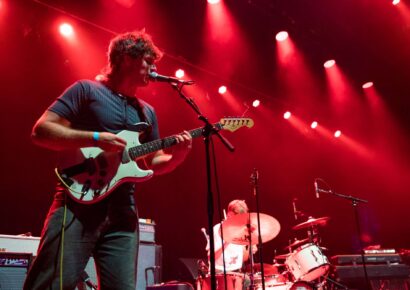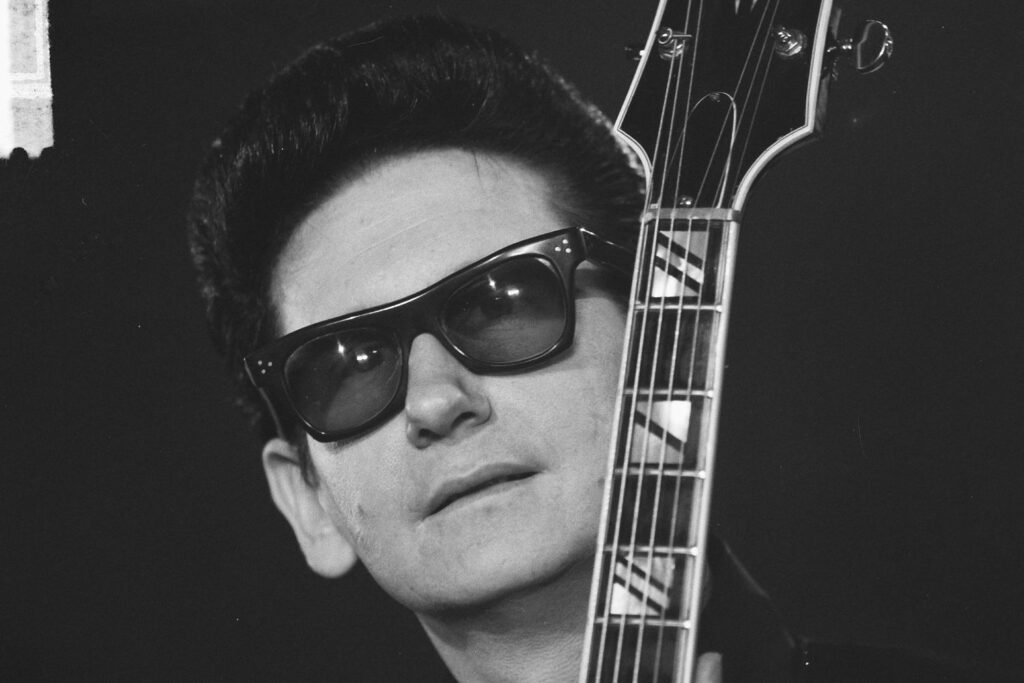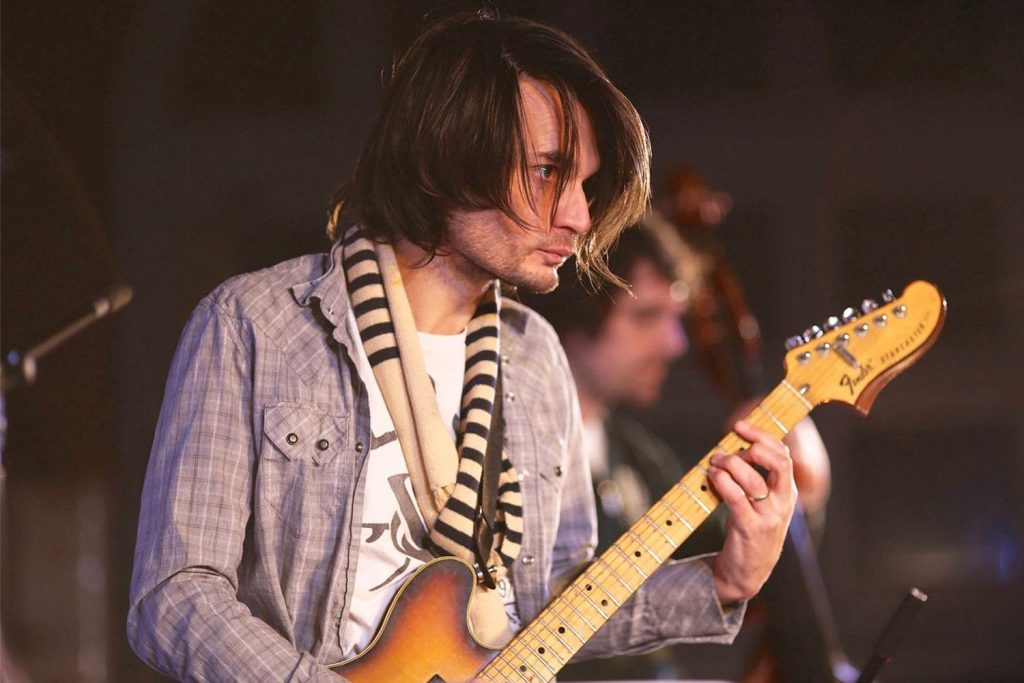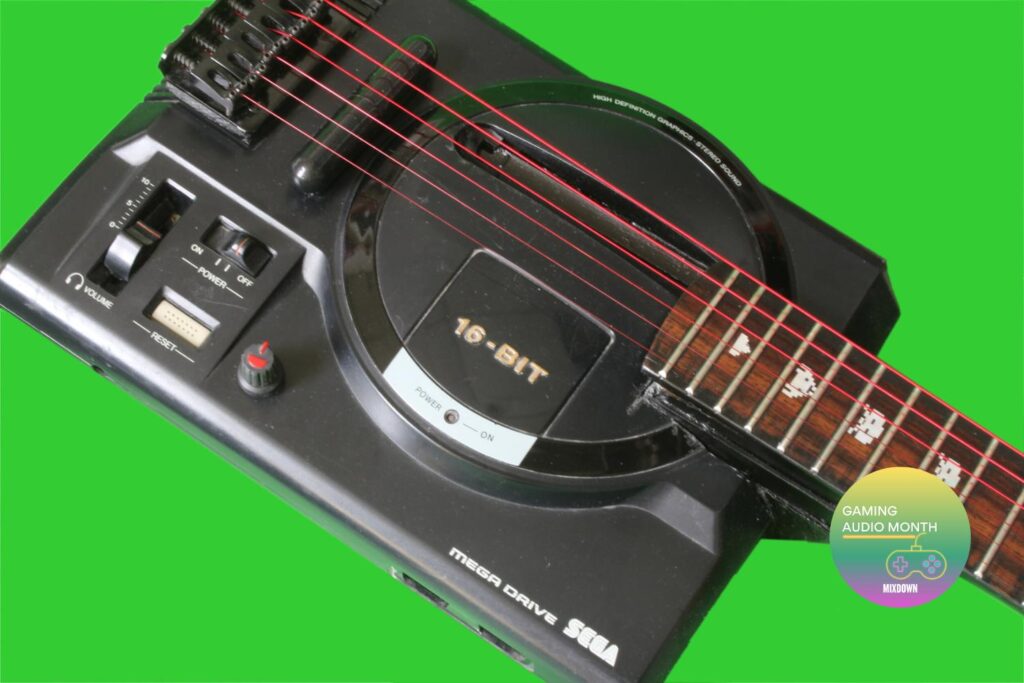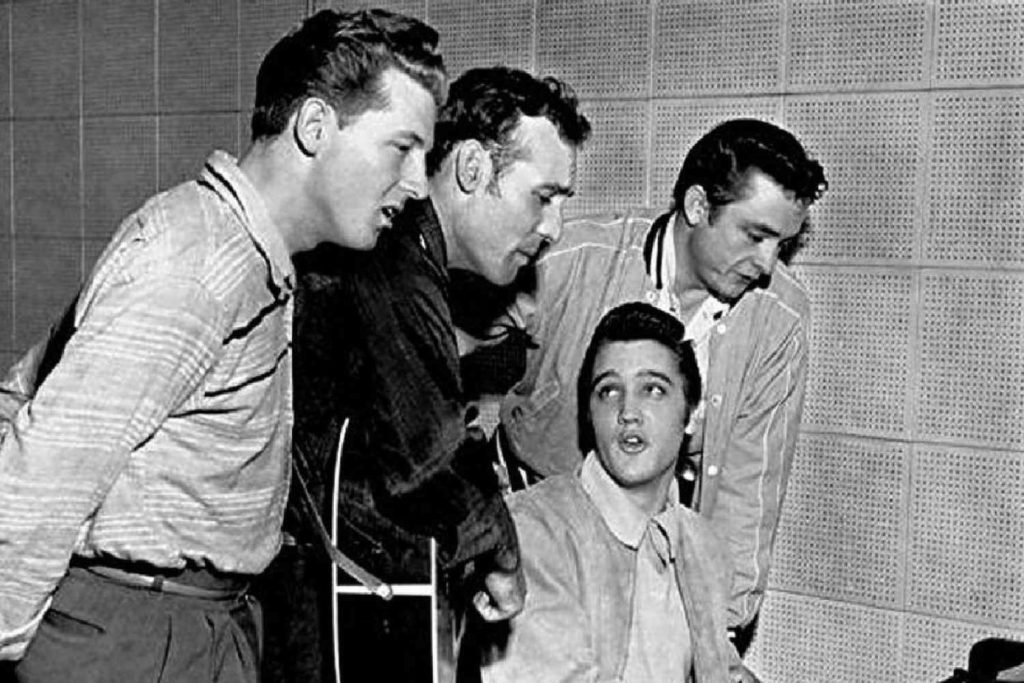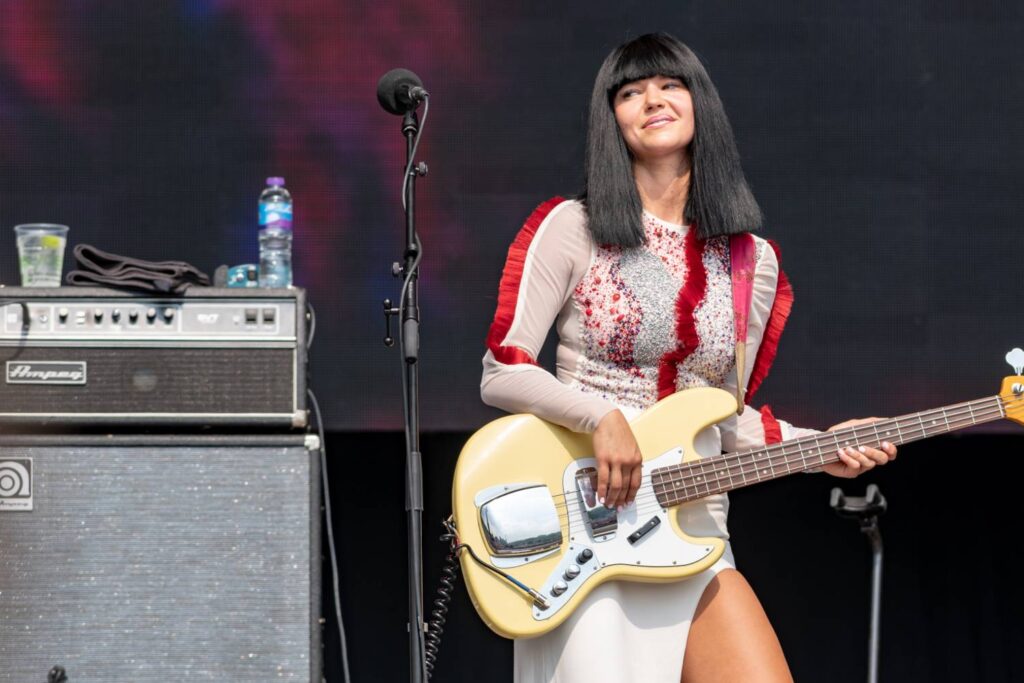Photo by Photoyunist
In honour of our inaugural Gaming Audio Month, Mixdown sat down with experimental sound artist Uboa, who is highly influenced by the audio design of modern games.
Uboa is an experimental sound artist from Melbourne, whose sound ranges from abrasive chaos to divine ambience and just about everything in between. The sonically surreal dichotomy that is her album The Origin Of My Depression blends samples, loops and noise into a cohesive form that ebbs and flows, taking cues from gaming and its sound design, both in the worlds that players inhabit and the foley that surrounds them as they explore. We spoke to Uboa about what makes her tick, and ultimately how she found herself taking such a unique route to music, sound and performance.
Read up on all the latest interviews here.
What came first – music or gaming?
Games I think.
I started playing and making games first as a very young kid, and started making music just around early adolescence… I’d often prefer to make them myself more than playing or listening to the work of others.
How do you describe yourself? A musician, composer, songwriter, DJ, artist? Something else?
Generally a lot of people call me a ‘noise musician’ or ‘noise artist’… however my stuff is so much more ‘musical’ than most harsh noise artists and is produced in a different way that has more in common with sound design. There’s bits of producing, performance art, songwriting, composing (with graphic scores, I can’t read standard notation), visual art and poetry, etc.
How do video games inform your music?
I do a small amount of references in lyrics and samples (and my stage name) because I have a lot of emotional ties with games. They helped me get through a lot of turmoil even if it’s a little embarrassing to admit it.
Also, the sound design of modern games is very influential on me. I like how modern sound design is used to convey a world to the audience, either in games or movies.
People usually ignore the sound design of games as they are too immersed in the world of the game to notice… turning off the music and simply listening to the foley, sampling, real-time mixing of gunshots, impacts, robots, creatures, blood and gore overlaid with dialogue and background sound I think can be considered its own form of musique concrete.
Is there a moment/song/artist/game/film that made you realise you wanted to make music?
No. I never aspired to be an artist initially and mostly wanted to make the songs I heard in my head for my own enjoyment. I kept doing it and started getting attention for it, so now it’s my thing.
Has your experience making games and mods aided your ability to use samplers and other digital equipment? I.e. have you got experience with coding and programming that helps you achieve certain sounds?
Nope. I’ve never really done much coding or programming. Generally I just stick to Ableton’s elaborate effects rack system as I need the visual feedback when making things.
I am usually quite impatient and want to make the song as quickly, enjoyably and efficiently as possible, especially if I have an idea in my head I need to get out before I forget it. I haven’t found coding helpful for this purpose, but would love to learn.
My laptop, my synthesisers and midi interfaces I use have – if you squint– some similarity to game controllers. They can also be seen like paint brushes or pens. If anything, it’s level and asset design (and as aforementioned, sound design) that inspires me the most.
Is your music composed and performed or is it improvised using samples? Possibly a bit of both? Something else entirely?
Most of the stuff I do live is me playing synths, singing or making noise with pedals etc… the samples I use are generally loops, intros or bursts of noise. Some of my recent live sets have had more samples in them, and I am trying to think of ways I can make them more dynamic to my playing, for example side-chaining or automation.
As with my sets and recordings being improvised or composed: I dislike the either/or binary of ‘improvisation’ and ‘composition’ now that most music is increasingly immanent to its production. That is to say the old division of composition, performance, recording, mixing, production, mastering, etc. is gone.
Overall, improvisation becomes recorded, reiterated and elaborated into a composition… and I often think about how I can translate it to it being solo on stage, especially to play the songs with instrumentation I can’t all do myself live without merely sampling them all as loops.
To a certain degree I consider myself a surrealist insofar as ‘automatic’ improv playing dredges up things from the unconscious, or maybe ‘hyperrealist’ insofar as there is no such thing as an ‘original’ with what I do, nor do I care about one. I feel these are two of the most exciting aspects of experimental laptop music right now that liberate it from the ‘structure’ of the ‘rock band’ that artists like Sophie were so eager to break out of.
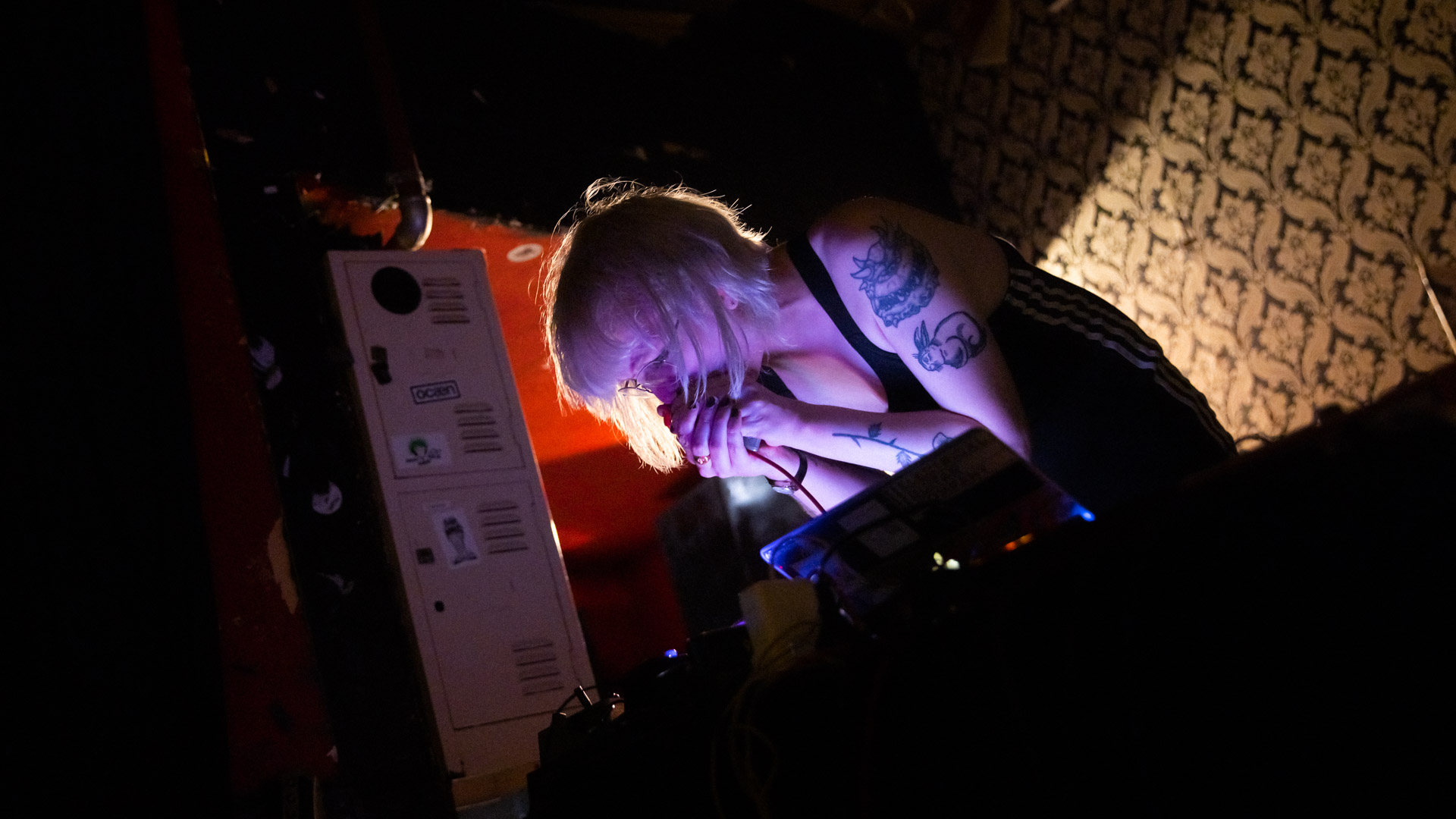
The contrast between impact sounds and ambience creates a really interesting dichotomy. How do you find working with sounds that people associate with games and memories affects their perception and reaction to the music? Is this something you’ve learnt to harness and use to your advantage?
I am interested to see what you could do with extreme dynamics emotionally. I always wanted to see the jumpscare play more of a role in extreme music – they do indeed work in horror games and movies, so much so it’s considered passe. I got interested in the idea after hearing the intro Pig Destroyer’s Terrifyer as a 14-year old. It was really effective in making the listener pay attention, usually with a fight-or-flight response.
As with the associations with memories of games in the past, it’s not something intentional at all, but it’s likely unconsciously there. Generally I prefer to make my own samples or at the very least modify them heavily.
This is for two reasons: one is if I just download samples and use them passively I feel like the song somehow isn’t ‘mine’ and that I am ‘lazy’– it feels like my own personality is gone from the song if I simply use other peoples’ work.
The other issue is of course capitalism and the totalitarianism of copyright law. So much art has been destroyed, censored or demonetised because of corporate greed regarding intellectual property. I think the abusive domination of IP needs to be abolished, alongside the entire mode of production which requires it.
Going back to video games, I used to create a lot of mods for Doom (the original 1993 game)… the Doom modding community is full of projects – from levels to entire games and ‘total conversions’— that freely ‘sample’ elements of games that skirt very much in the grey area of copyright law with wonderful creative results.
It goes to show that creativity is more often than not suppressed by the drive for profit which goes against the myth that it is the other way around. We need to liberate samples from the tendency of profit seeking to crush creativity, as I think samples are one of the most emotionally powerful elements in music.
For future reference, anybody may sample my music insofar as one isn’t being a jerk. Being sampled is always extremely humbling.
What’s next for Uboa? Any more games and mods on the horizon, more music?
I am working on an upcoming album for The Flenser and many other works. There is a lot of stuff I’m sitting on and itching to get out there. Some old music of mine will be in a feature film soon too, which is very exciting.
I’d love to get back into the Doom engine again one day and make a total conversion or full game where I can make all the assets myself and create something weird. Game design (even with mods) is very time consuming and requires a lot of organisation. I’d also like to try out music videos and get back into graphic design. I care about every aspect of my art – every form of media an artist does affects the aesthetic experience. To vaguely paraphrase Derrida, there is nothing outside of the artwork in this sense.
Uboa’s approach to making music, the immanent nature of it all, from recorded improvisation to refined composition and use of samples from these improvisations in live performances speak to the influence that gaming has had on her music. It’s gritty and noisy and chaotic, but it’s also all performed by someone allowing the equipment and sound to be steered by her, similar to how a player might steer a character through an open world—full of opportunities. There’s something to be said for the limitations that big businesses place on sounds, and Uboa is fighting the good fight by harnessing those sounds, reimagining them, and making them into something entirely new in the pursuit of an open source of sounds and samples. Her live performances are a sight to behold, and understanding her methodology, processes and inspirations bring a whole new level to them.
Follow Uboa here.

